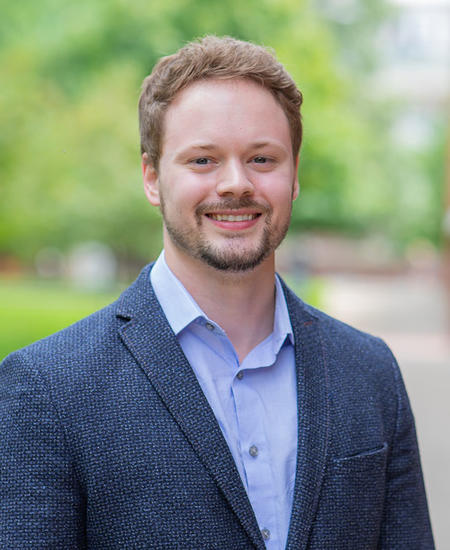Julius Schoop, assistant professor in the Department of Mechanical Engineering at the University of Kentucky and core faculty at the Institute for Sustainable Manufacturing, has received a National Science Foundation (NSF) Faculty Early Career Development (CAREER) Award.
The CAREER Award is one of the "most prestigious awards in support of the early career-development activities of those teacher-scholars who most effectively integrate research and education within the context of their organization's mission," according to the NSF.
Schoop, who started at UK in 2018 following his position as Principal Engineer at TechSolve, is a materials science and manufacturing process expert with a combination of applied and theoretical knowledge of advanced manufacturing processes, particularly machining and finishing processes used in the aerospace and defense industry.
Schoop received the award for his project titled “CAREER: Thermomechanical Response and Fatigue Performance of Surface Layers Engineered by Finish Machining: In-situ Characterization and Digital Process Twin” The project will award $507,288 over five years and conclude in 2027. Funding for the project is via NSF’s Advanced Manufacturing (AM) program under the Civil, Mechanical and Manufacturing Innovation (CMMI) division within the Engineering (ENG) directorate.
Abstract
This project will pursue fundamental new knowledge of the effects of finishing processes on the response and performance of advanced metal alloys.
Finish machining processes are widely used in industry and determine many critical surface properties. Pro-active engineering of these properties through a proposed Digital Process Twin approach could significantly increase the quality, performance, and life of many structural components. For example, improved fatigue life of aerospace components such as landing gears and turbine blades could help to further increase the safety of commercial aviation and green power generation, while also helping to reduce costs by extending the useful life of these high-value parts.
Additional benefits of the proposed approach include improved productivity and competitiveness of the U.S. advanced manufacturing industry, with wide application potential in the aerospace, biomedical, and automotive sectors. To ensure that project outcomes yield the most benefit to society, the project team will collaborate closely with leading regional and national aerospace manufacturers to identify key technical requirements and workforce education needs in industry. Collaboration with the Society of Women Engineers will be leveraged to recruit and train a more diverse workforce with full participation of female and underrepresented minority students. The principal investigator will pursue the establishment of a collaborative working group that will bring together experts from both academia and industry and provide much-needed pedigreed process model input data.
The core research objective of this CAREER proposal will be realization of model-based Smart Finishing through the systematic study and modeling of finishing-specific material response to thermo-mechanical loads of finishing processes.
Research reported in this publication was supported by the National Science Foundation under Award Number 2143806. The opinions, findings, and conclusions or recommendations expressed are those of the author(s) and do not necessarily reflect the views of the National Science Foundation.
